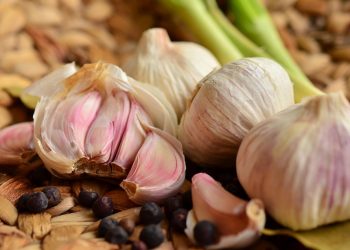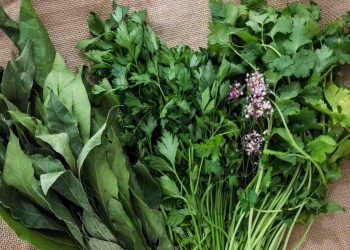Anti-inflammatory foods can be your secret weapon for a healthier, happier life. They’re not just a trendy buzzword; they’re a lifeline for those struggling with chronic inflammation, which can lead to various health issues. Understanding what you put into your body is crucial. Let’s dive into the world of anti-inflammatory foods and discover how they can transform your well-being.
Contents
What Are Anti-Inflammatory Foods?
Anti-inflammatory foods are those that help reduce inflammation in the body. Inflammation is a natural response to injury or infection, but when it becomes chronic, it can wreak havoc on your health. Think of it as your body’s alarm system going haywire. Chronic inflammation is linked to diseases like heart disease, diabetes, and even cancer.
The good news? You have the power to combat this through your diet. By incorporating certain foods into your meals, you can help your body fight back.
Why It Matters
You might wonder, “Why should I care about inflammation?” Well, chronic inflammation can lead to fatigue, chronic pain, and a host of other unpleasant symptoms. The right foods can help you feel more energetic, enhance your mood, and improve your overall quality of life. Who wouldn’t want that?
The Role of Nutrition in Inflammation
Nutrition is the foundation of good health. Eating the right foods can reduce inflammation and promote healing. Research shows that certain nutrients, like omega-3 fatty acids and antioxidants, can play a significant role in reducing inflammation. It’s not just about avoiding the bad stuff; it’s also about embracing the good.
10 Anti-Inflammatory Foods to Include in Your Diet
Let’s explore ten powerhouse foods that can help you reduce inflammation and boost your health.
1. Berries
Berries are not just delicious; they’re packed with antioxidants, particularly flavonoids, which have anti-inflammatory properties. Blueberries, strawberries, and raspberries can help lower inflammatory markers in the body.
- Why You Need Them: They’re low in calories and high in nutrients. Plus, they add a pop of color to your plate!
2. Fatty Fish
Salmon, mackerel, and sardines are rich in omega-3 fatty acids, which are known to combat inflammation. These healthy fats can also improve heart health and support brain function.
- Why You Need Them: Incorporating fatty fish into your diet can help reduce the risk of chronic diseases.
3. Leafy Greens
Spinach, kale, and Swiss chard are loaded with vitamins and antioxidants. They’re also rich in vitamin K, which has been shown to have anti-inflammatory effects.
- Why You Need Them: Leafy greens are versatile. Toss them in salads, smoothies, or even stir-fries.
4. Nuts
Almonds, walnuts, and hazelnuts are excellent sources of healthy fats, fiber, and protein. They also contain antioxidants, which can help reduce inflammation.
- Why You Need Them: A small handful of nuts can make for a satisfying snack that keeps your hunger at bay.
5. Olive Oil
Extra virgin olive oil is packed with oleocanthal, a compound that has similar anti-inflammatory effects as ibuprofen. Drizzle it on salads or use it for cooking.
- Why You Need It: It’s a staple of the Mediterranean diet, which is known for its heart-healthy benefits.
6. Turmeric
Turmeric contains curcumin, a powerful anti-inflammatory compound. Adding this spice to your meals can enhance flavor and health benefits.
- Why You Need It: It’s easy to incorporate into your diet. Try it in soups, smoothies, or even golden milk.
7. Ginger
Ginger has long been celebrated for its medicinal properties. It’s effective in reducing muscle pain and soreness, making it a great addition to your diet.
- Why You Need It: Whether fresh, dried, or as a tea, ginger can add warmth and flavor to your dishes.
8. Garlic
Garlic isn’t just for warding off vampires; it’s also a powerful anti-inflammatory food. It contains sulfur compounds that can help fight inflammation.
- Why You Need It: Add it to almost any savory dish for a flavor boost and health benefits.
9. Avocado
Rich in monounsaturated fats and antioxidants, avocados can help reduce inflammation. They’re creamy, delicious, and versatile.
- Why You Need Them: Use them in salads, on toast, or blended into smoothies for a nutrient boost.
10. Green Tea
Green tea is packed with polyphenols, which are known for their anti-inflammatory properties. It’s a soothing beverage that can also boost metabolism.
- Why You Need It: Sip on green tea instead of sugary drinks to enhance your hydration and health.
How to Incorporate These Foods into Your Daily Life
You might be wondering, “How do I actually add these foods to my diet?” It’s easier than you think. Here are some practical tips:
- Start Small: Add one or two anti-inflammatory foods to your meals each week.
- Mix and Match: Create colorful salads with leafy greens, berries, nuts, and olive oil.
- Experiment: Try new recipes that incorporate these ingredients. Your taste buds will thank you!
- Stay Hydrated: Enjoy green tea throughout the day for a refreshing boost.
Additional Tips for Reducing Inflammation
While focusing on anti-inflammatory foods is essential, don’t forget about other lifestyle factors that contribute to your overall health.
1. Stay Active
Regular exercise can significantly reduce inflammation. Aim for at least 150 minutes of moderate aerobic activity per week.
2. Get Enough Sleep
Quality sleep is vital for reducing inflammation. Aim for 7-9 hours of restful sleep each night.
3. Manage Stress
Chronic stress can lead to inflammation, so practicing mindfulness or engaging in hobbies can help.
4. Stay Hydrated
Drinking enough water supports overall health and helps flush out toxins.
5. Limit Processed Foods
Reducing your intake of sugary and processed foods can help lower inflammation levels.
Bottom Line
Incorporating anti-inflammatory foods into your diet can profoundly impact your health. You have the power to make choices that can lead to a healthier, more vibrant life. By embracing these foods, you’re not just eating; you’re nourishing your body and soul.
So, what are you waiting for? Try adding these foods to your meals today and feel the difference. Your body deserves the best!
FAQs
1. How long does it take to see results from eating anti-inflammatory foods?
Results can vary based on individual health conditions, but many people notice improvements in energy and mood within a few weeks.
2. Can I take supplements instead of eating these foods?
While supplements can be helpful, whole foods provide a range of nutrients and benefits that supplements may not replicate. Aim for a balanced diet first.
3. Are there any foods I should avoid to reduce inflammation?
Yes, it’s best to limit processed foods, refined sugars, and excess saturated fats as they can promote inflammation.
Explore the world of anti-inflammatory foods and take charge of your health today!
Get Your FREE Natural Health Guide!
Subscribe now and receive our exclusive ebook packed with natural health tips, practical wellness advice, and easy lifestyle changes — delivered straight to your inbox.















